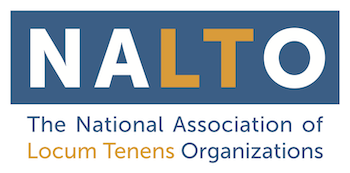Making yourself marketable for locum tenens practice
Whether you practice locum tenens full-time or accept only the occasional engagement, there are ways to make yourself more attractive and marketable to both locum tenens agencies and their client facilities. It is all about flexibility, adaptability, affability, thinking strategically, and staying organized.
Physicians who enjoy steady locum tenens contracts know the importance of being flexible. This means being willing to travel to locations outside your immediate area and to practice in a variety of medical settings. For instance, locum tenens physicians may find themselves seeing patients in a rural community with a 40-bed hospital one month and in a metropolitan university hospital the next. You may think you only want to practice in outpatient settings in California, but opening yourself up to different locations and practice environments can be very rewarding. And, while the majority of locum tenens placements are arranged weeks or months in advance, occasionally an emergency arises that requires immediate coverage in a hospital or clinic. Be that physician if you can.
Adaptability is a key component of making yourself marketable. Being professionally adaptable means "going with the flow" and conforming to existing standards, systems, and protocols. One of the benefits of practicing locum tenens is that you are exposed to a variety of practice and management styles. By all means, share your accumulated wisdom, just do not voice your suggestions on the first day you are in a new setting. On the other hand, never be so "polite" as to put yourself, or patients, at risk in a practice you deem unsafe or inappropriate. Should you find yourself in this situation, notify your recruiter or scheduler immediately.
Just as important as being flexible and adaptable is being affable. Physicians who approach each new opportunity as though they are guests tend to get off on the right foot, maintain good relationships throughout the engagement, and are more likely to be asked back. Request a complete orientation session in each new setting. Within the first few days, introduce yourself to other physicians and support staff. Err on the side of over-communicating. Ask questions rather than make assumptions. Balance your professional competence with a healthy dose of humility. And remember to take your sense of humor with you to each new placement.
From a strategic standpoint, do not be too eager to give up doing procedures, relinquish certifications, or move away from inpatient care. The broader your skill set, the more marketable you are. It may feel right today to say, "I have had enough of obstetrics; from now on I do strictly office gynecology." But you may ultimately be limiting your options. If you have let certain skills lapse or simply want to add new tools to your black bag, consider a preceptorship or "mini-residency." Let your recruiter know about significant new experience you gain so that he or she can update records and factor the data in when matching you with future opportunities.
On the organizational side, in addition to keeping a record of your placements and updating your CV accordingly, keep licenses and certifications current. A willingness to hold an active medical license in several states will increase your odds of steady engagements. Maintaining a current reference list is important for two reasons. First, most agencies require references from individuals you have worked with during the past 6-12 months. Second, you do not want to "burn out" a handful of references by asking them repeatedly to write letters on your behalf. If you have anything in your background that a credentials committee would want to know about (malpractice history, substance abuse treatment, privilege or license restrictions, etc.), it is always best to bring these issues up with your re-cruiter or scheduler at the outset of the relationship. Hospitals and clinics are often quite forgiving when it comes to issues from the past—unless they sense a doctor is trying to hide something.
Keep these key points and tips in mind as you continue your locum tenens career and you can look forward to ongoing opportunities in your most desired locations. Be sure to speak with your NALTO agency recruiter for more ideas about how you can make yourself more marketable. Remember, incorporating these attributes into your practice will contribute to your success in locum tenens, and also help broaden your professional and personal life—no matter what course you choose to pursue in the future.
Views and opinions expressed herein are those of NALTO and not necessarily those of Advanstar Communications Inc. or LocumLife.
About the Author
Karen Childress is a Colorado-based freelance healthcare writer currently crafting a series of articles on behalf of NALTO.
